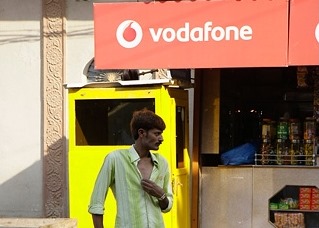
A Delhi high court judgment has ruled against the Income Tax Department but in effect upped the pressure on other Mauritius or overseas-based tax avoidance structures.
Share sales of companies incorporated overseas, which derived less than 50 per cent assets of their value from Indian assets, would definitely not be taxable for capital gains, held the court.
This could leave the door open for the tax department to argue that under the retrospective tax law passed in 2012 following the Supreme Court’s Vodafone judgment, any foreign holding company’s capital gains, where more than 50 per cent of its valuable assets were in India, would be taxable in India.
Some international jurisprudence such as the United Nations’ and the OECD’s, had recommended that deriving substantial value from assets located in a country should equate to 50 per cent of assets held in that country. A similar recommendation was made by a committee under the previous Indian government, but that was never officially adopted or ruled on by the courts.
This case could affect tax structures in ongoing cases such as the battle between the tax department and Vodafone, Nokia, Birla-AT&T and others, said a lawyer familiar with the subject.
Facts and judgment (14 August 2014 WP 2033/2013)
The case concerned the government tax office’s appeal against the Authority for Advance Ruling (AAR) decision that the capital gains of a share sale of Copal Research India by its Mauritian parent to a Cyprus company was not subject to tax and there was no obligation on the purchasers to withhold tax from the purchase price.
A Delhi high court bench of justices Vibhu Bakhru and Ravindra Bhat agreed with the AAR’s decision in not holding the companies liable to witholding tax in India and held that:
33. In view of the above, gains arising from sale of a share of a company incorporated overseas, which derives less than 50% of its value from assets situated in India would certainly not be taxable under section 9(1)(i) of the [Income Tax] Act read with Explanation 5 thereto.
Section 9(1)(i) of the Income Tax Act 1961 states:
The following incomes shall be deemed to accrue or arise in India :- (i) All income accruing or arising, whether directly or indirectly, through or from any business connection in India, or through or from any property in India, or through or from any asset or source of income in India, or through the transfer of a capital asset situate in India;
[…]
Explanation 5.—For the removal of doubts, it is hereby clarified that an asset or a capital asset being any share or interest in a company or entity registered or incorporated outside India shall be deemed to be and shall always be deemed to have been situated in India, if the share or interest derives, directly or indirectly, its value substantially from the assets located in India.’;
Senior counsel S Ganesh represented Copal and various affiliated companies, while DSK Legal partner Balbir Singh acted for the tax department as its senior standing counsel.
Update 22 August: Nishith Desai Associates has also published a more detailed analysis now.
Photo by Nevil Zaveri
threads most popular
thread most upvoted
comment newest
first oldest
first
1. You haven't started a dialogue either, other than seemingly inviting trolls to have a go at you :)
2. The article's had pretty good pageviews actually so there's clearly interest from readers, but maybe there's not a huge amount more to say about this judgment?
3. If there is something to be discussed, why don't you share your thoughts, would love to hear and hopefully raise the tone of conversation for the commentariat too... :)
Cheers
Kian
1. You haven't started a dialogue either, other than seemingly inviting trolls to have a go at you :)
2. The article's had pretty good pageviews actually so there's clearly interest from readers, but maybe there's not a huge amount more to say about this judgment?
3. If there is something to be discussed, why don't you share your thoughts, would love to hear and hopefully raise the tone of conversation for the commentariat too... :)
Cheers
Kian
threads most popular
thread most upvoted
comment newest
first oldest
first